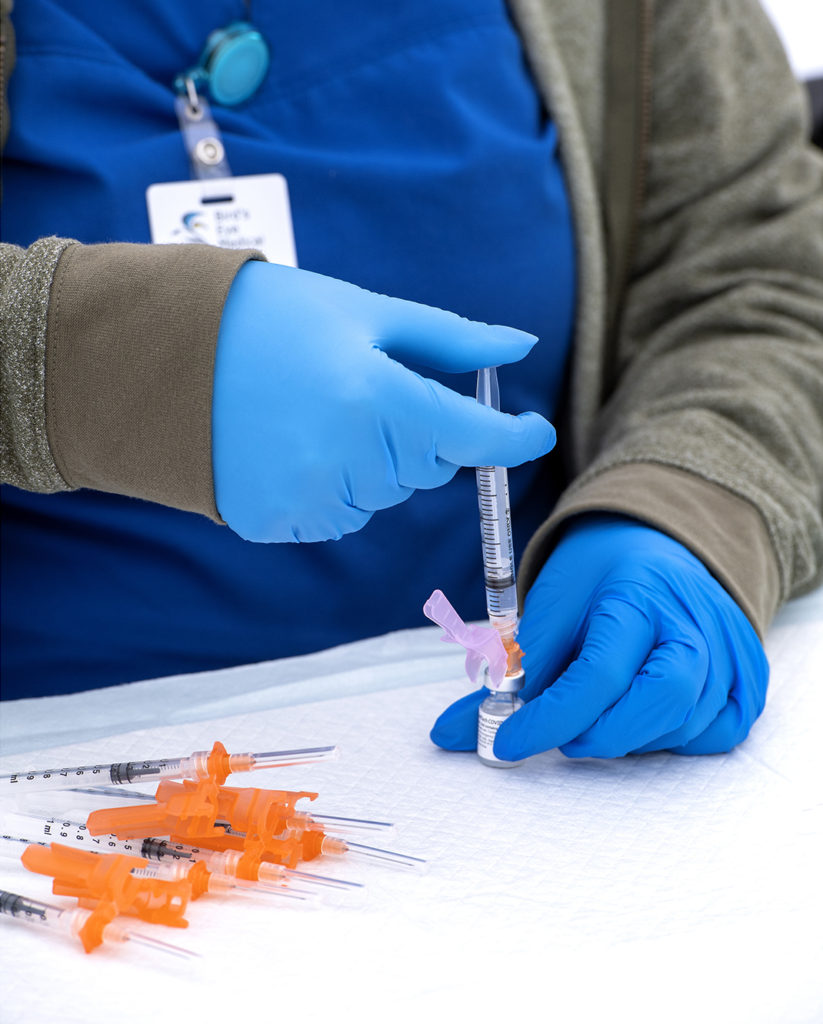A new survey finds 62 percent of Latinos/Hispanics in Washington state are willing to take the COVID-19 vaccine yet remain under-vaccinated. LCH calls for policymakers and public health officials to target communications and accessibility barriers.
University of Washington, Seattle: In a new survey of Sea Mar Community Health Center patients, the Latino Center for Health (LCH) found that most (62%) Latinos/Hispanics believe vaccines are safe and effective at preventing infections and are willing to take the COVID-19 vaccine if available to them, despite having some concerns related to cost, side effects, and effectiveness.
“This data supports that the issue with Latinos not getting the COVID-19 vaccine is not so much due to hesitancy but access. Our policymakers should address these barriers and bring the vaccine to our communities to mitigate the health inequities that Latinos have experienced during the pandemic,” said Dr. Miriana C. Durán, Research Coordinator at the University of Washington School of Public Health.
The COVID-19 pandemic has disproportionately impacted Latinos nationally, with mortality nearly six times that of non-Latino whites. In Washington state, the COVID-19 infection rate for Latinos is the second-highest in the nation, accounting for more than a third of COVID-19 cases in the state when Latinos are only 13% of the state’s population. Throughout the pandemic, Latinos have had inadequate access to COVID-19 testing and other resources and are once again lagging behind other groups in the state in accessing approved COVID-19 vaccines, despite being overrepresented in the state’s essential workforce. As of 4/7/2021, Latinos make up only 7% of all individuals 16 years of age and older who have received at least one vaccine dose in WA state.
In light of the disproportionate burden of COVID-19 on Latinos in WA, inequities in vaccine access, and the willingness of Latinos to take the vaccine, LCH urges community leaders, policymakers, and public health officials to increase the vaccination rate for Latinos in WA by tailoring communication strategies and public education, improving access, and engaging with local community-based organizations.
This policy brief prepared by LCH contains a list of recommendations aimed at reducing vaccine hesitancy and increasing vaccine acceptance and uptake among Latinos in WA state. Some recommendations include:
- Engaging local Latino community leaders as effective and trusted advocates to deliver information on COVID-19 vaccines.
- Expanding service hours in vaccination clinics, including after-hours and weekends, making appointments accessible to people working in various shifts.
- Increasing engagement with Community-Based Organizations as trusted, safe, and familiar spaces, with cultural and linguistic knowledge.
“Latinos in WA want to get the COVID-19 vaccine — let’s be empathetic, meet them where they are, help them overcome the obstacles they face, and give them relevant information in the language they understand best,” said Community Health Worker and UW Public Health Practice student Aida Hidalgo MSc, Ph.D.
LCH created the survey and policy brief in partnership with Sea Mar Community Health Centers. Sea Mar’s network of services includes more than 90 medical, dental, and behavioral health clinics in WA state and a wide variety of nutritional, social, and educational services.
